Clinical dentistry shouldn’t be a full-time job, should it?
Dr Zaeem Jafri gives us an in-depth look into why he believes clinical dentistry should not be a full-time job.
Clinical dentistry should not be a full-time job. In 2015 The Independent claimed dentistry (and dental nursing) to be one of the most dangerous jobs in the world:
- High exposure to contaminants
- High exposure to diseases and infections
- A long time spent sitting (leading to chronic back pain and other health concerns)
- A long time spent in an isolated and closed environment with minimal outside contact and fresh air
- High rates of depression, adultery and suicide
3 years into my career, I cut my clinical working days down to 3 a week and I have not regretted it for one second. As well as improving my own mental health and still providing me with a good income (however much you complain, dentistry is a very well-paid profession), it has provided me with time to pursue my other passion, health-tech.
The ‘Tech industry’ is everything that healthcare is not. Fast, daring, full of innovative entrepreneurs and start-ups that are pushing the boundaries of what is possible, funded heavily by cash rich venture capitalists. £2.99bn was invested in London start-ups in 2017. Due to advances in technology, people these days want everything to be as convenient to them as possible. Netflix, Uber, Deliveroo, Zip car, Monzo are just a fraction of the fast-growing companies that have made our lives dramatically easier.

Revolutionising an industry
Now healthcare, for obvious reasons cannot follow the same model as the above companies, let’s see what can go wrong: ‘Tharanos’ a company trying to revolutionise blood testing industry collapsed after once being valued at £10bn. Apart from the business failures, the company faced several lawsuits for distributing false results and pushing unproven testing measures which lead to several customers being given blood tests that were false, all in the interest of company growth.
When it comes to consumer health, a poor product isn’t just a phone that overheats or a cold meal being delivered too late, it’s people making healthcare choices on false information leading to potentially fatal consequences.
Having an AI doctor/dentist would mean you can get tailored medical advice 24/7 no matter where you are
In order to make sure we do not leave university causing chaos and disaster, undergraduate education and hospitals (rightfully so) spend a crazy amount of time making sure we are safe. We are not trained to be clinical leaders, innovators, high quality physicians.
The GDC 5-year pathway results in an outflow of ‘Safe beginners’, taught to always do the safest, least invasive and risk averse thing. To under-promise, highlight every single risk possible and avoid complaints and litigation. These characteristics almost go the complete opposite to what is required to be a good entrepreneur or innovator. It is a shame that undergraduate dental programs do not cater for the students who want to pursue this pathway in dentistry. Although we need to graduate as safe practitioners there are plenty of us who want to do more than just clinical dentistry and we are left to our own devices to develop the skills required to innovate.
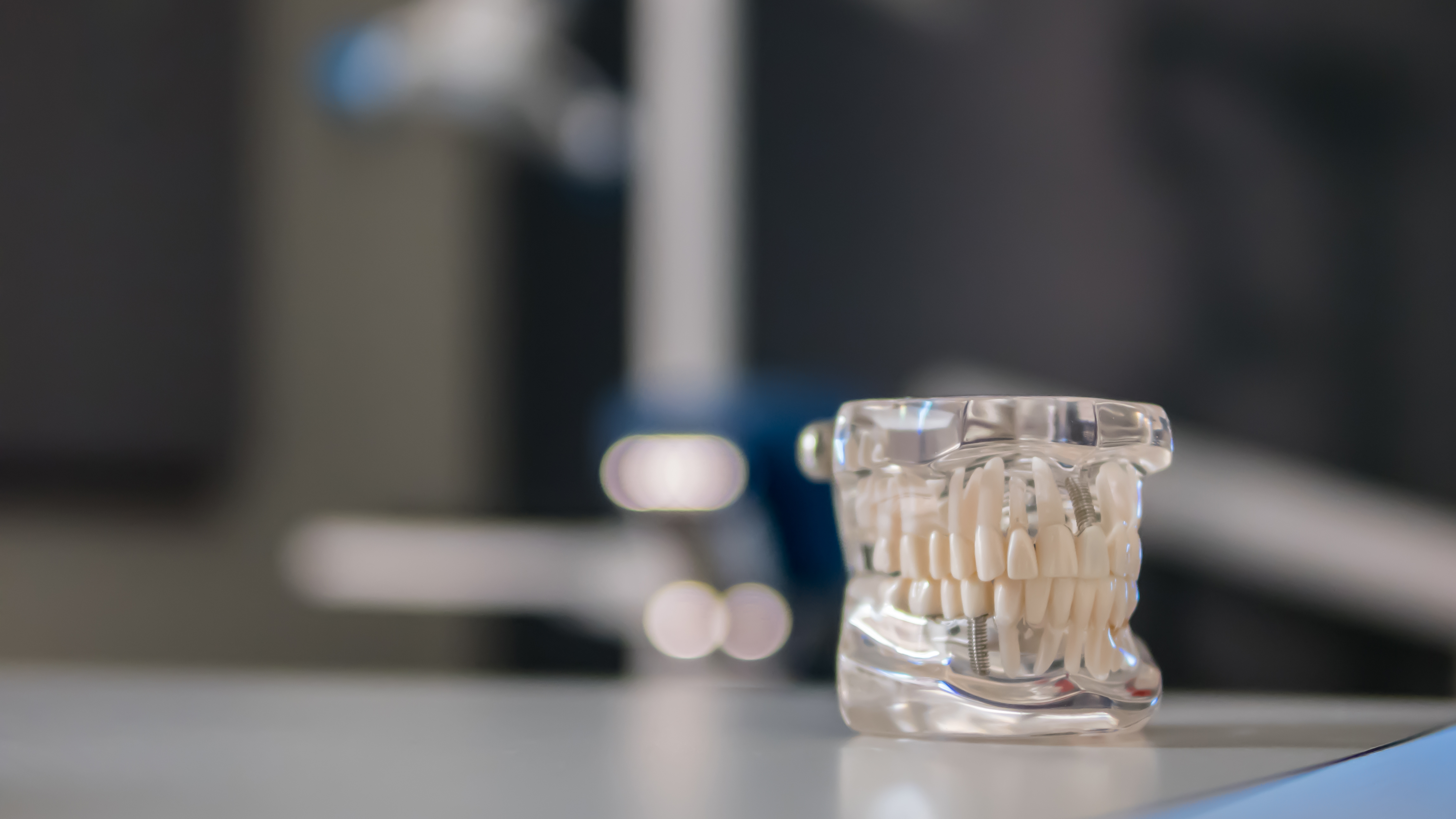
The world we live in is vastly different to what it was ‘back in the day’. People do not like putting their entire trust in professionals anymore and people shop around. Everything is very easy and convenient for us. The companies I mentioned earlier have challenged Draconian systems of the past and the same can be applied to dentistry. People these days want instant results, they have access to a vast amount of information and are much more conscious about personal health than ever before.
Vitality GP
A few weeks ago, I went to visit my GP. She referred me to an ENT consultant, prescribed me a nasal spray and gave me some self-care advice, the process took around 30 minutes and I did it all sat in my own dental chair at lunch time on my iPhone. Now, tele-healthcare is pretty simple and it’s basically a sophisticated video-chat, but Babylon Health has taken this concept one step further. It started off as a chat-bot designed to listen to symptoms and give health advice and has now launched its service called GP at Hand which is available on the NHS if you’re living in London.
Babylon’s main goal is to build an AI doctor that can help patients with routine medical care in the most convenient way possible.
Can you imagine the amount of time that would be saved if you could present your symptoms to Alexa who can guide you to the most reliable information or even diagnose you with a particular disease? Or if a mum, worried about the ‘extra teeth’ her first child is growing behind their front baby incisors doesn’t need to take time off work, take her child out of school and worry for 2 weeks to visit a dentist who simply takes a 5 second look to tell her this is completely normal?
Babylon has raised eight £85 million in order to build its systems. They are eliminating the laborious task of finding an appointment that suits you, physically taking time off work to visit your GP and then to a pharmacy. Having an AI doctor/dentist would mean you can get tailored medical advice 24/7 no matter where you are. Right now, their app doesn’t give any dental advice.
The innovators
A Florida company called Neocis has developed a robot that assists dentists placing implants. Using data from the CBCT and IO scans, ‘Yomi’ helps the dentist make sure they are in the correct operating position for the implant placement by giving resistance when the dentist veers off course. This is the first FDA approved implant robot. Consider it assisted power steering for implantologists. Yomi still allows the man operator overall control in the procedure but in China, there has already been a fully automated dental implant placement with just supervision of qualified dentists.
There is big potential for any dentist who is interested in innovation to capitalise on the changing world we live in
There is a company in America called Pearl AI that has raised £11m to develop software that automatically reads and assists dentist with x-rays. Will trying to read and interpret X-rays be a thing of the past for dentists? There are several other companies working on this task also (Orca AI, Dent AI to name a couple).
How some companies are
Invisalign is one of the most popular clear aligners systems in the world but there is so much more to this company than aligners. Align Technology is incredibly rich and are also heavily investing into machine learning. Align tech have over 6 million cases now, and with the rise if IO scanners and the roll out of iTero, they are gathering an exceptional amount of data regarding patient’s dentition. With the amount of data they collect they are becoming increasingly more efficient at providing instant clin-checks that guide dentist’s in their orthodontic treatment planning.
Currently a clin-check will take a few days to perfect but as the systems become more sophisticated and as 3D printers become cheaper and faster, are we going to work in era where a patient can come for an enquiry in the morning and leave the same day wearing their aligners? The same way we have Babylon developing an AI doctor, will Invisalign eventually launch an instant orthodontist who has all the textbook knowledge of ortho combined with the experience of 10 million previous cases? Or, dare I say it, is direct to consumer orthodontics (Straight Teeth Direct) going to be the future?
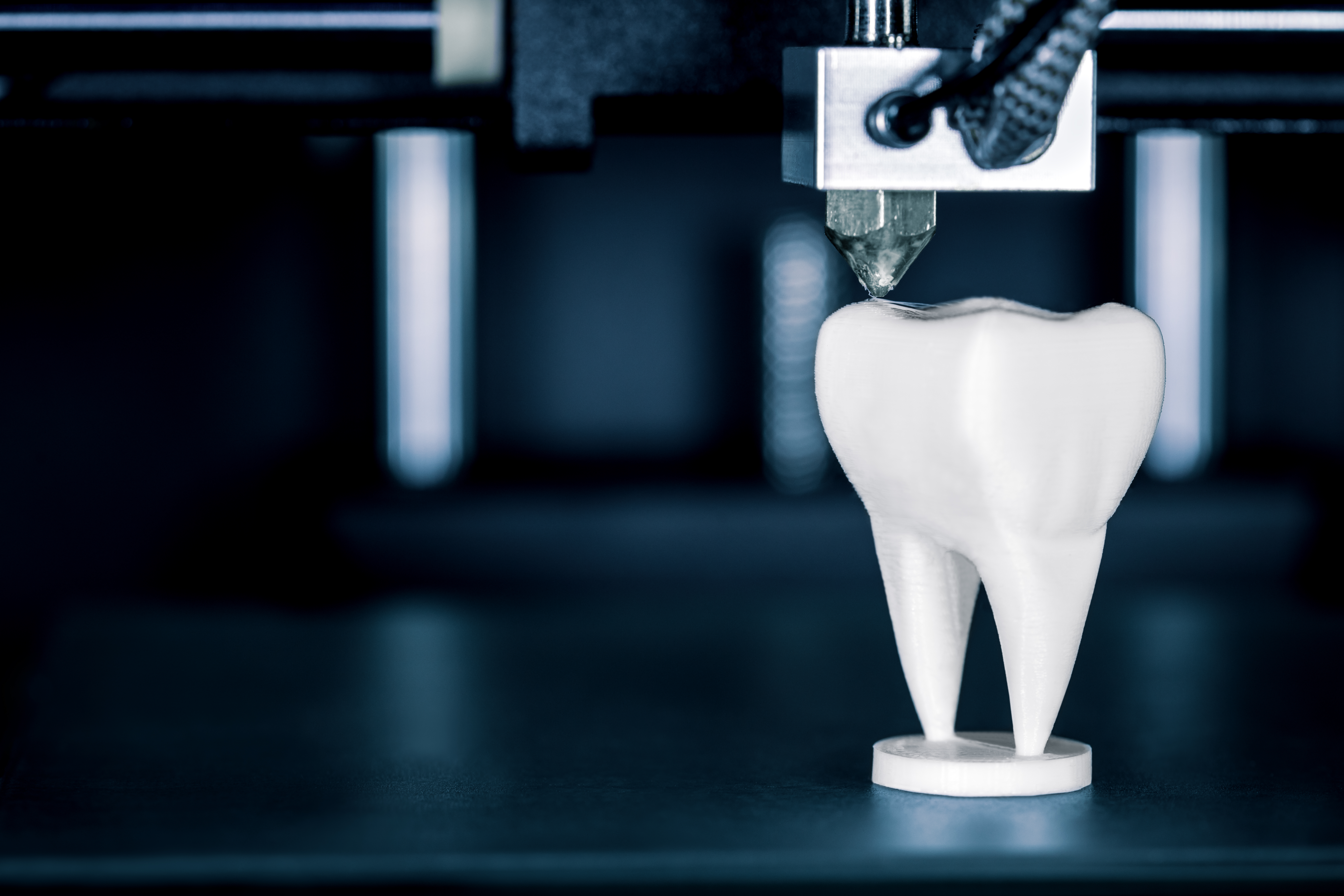
To add to this, a French company called Dental Monitoring has developed an at home system for patients to co-monitor their alignment process. By using their own smartphones attached to a device, patients can scan their teeth whilst wearing their aligners to check for any issues with the orthodontic treatment being provided.
So, what’s next?
Research from the Mayo clinic has shown that physician burnout is not just a consequence of long working hours. Their research showed that healthcare staff who spend a larger proportion of their time in front of their computers vs their patients suffer from high rates of burnout. Kiroku (the company that I dropped 2 days of clinical dentistry for) is developing technology that will fully automate clinical record keeping and clinical admin for dentists. Using the audio from a dentist-patient conversation, Kiroku will be able to extract the relevant discussions, translate them into dental terminology and input this information into the patient’s records. By automating administrative processes, dentists will be able to spend less time in front of the computer at work and more time doing what they got into the game for, treating patients.
Final thoughts
I hope you have found this article an interesting read, something to give you a break from reading about composite polishing, sexy rubber dams and Instagram marketing. The field of AI and health tech is massive, even within dentistry alone. There is big potential for any dentist who is interested in innovation to capitalise on the changing world we live in, to create new products, services that accommodate the needs of the future population. By the time today’s young dentists are reaching the peaks of their careers, ‘Generation Alpha’ will be one of the biggest consumer groups coming to visit us. Google them, check out the traits of a Gen Alpha consumer and think for yourself about the leaps the dental industry needs to make in order to cater to their needs and think about what you can do now to get ahead of the curve.
› DIG DEEPER ‹

» Training
To become an Enlighten Whitening Expert and get CPD certified for free hit the button below to take our hour-long online training.
» eBooks
Learn how to dramatically increase the number of whitening treatments you do here.
» Websites
Or if you’re interested in knowing more about the Enlighten Teeth Whitening System, then give it a click right here.

» eBooks
Read up on the 6 tips that will perfect your anterior resin restorations here.
And to discover how you can achieve the aesthetic results you want when doing a single veneer with a single shade of composite, click here.
» Websites
If you want to learn more about the 2-day hands-on anterior composite masterclass with Dr Dipesh Parmar, click here.
» Podcast
Learn how to emulate the success of the movers and shakers in the dental industry from their own mouths, featuring the nuggets of knowledge from likes of Simon Chard, Andrew Moore, Tif Qureshi, Mark Hughes and many more.




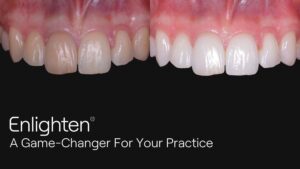
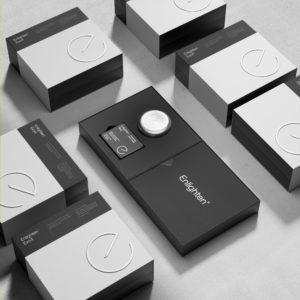
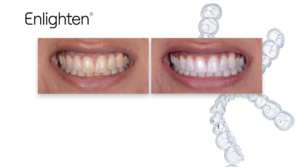
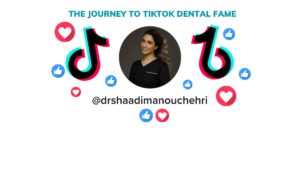
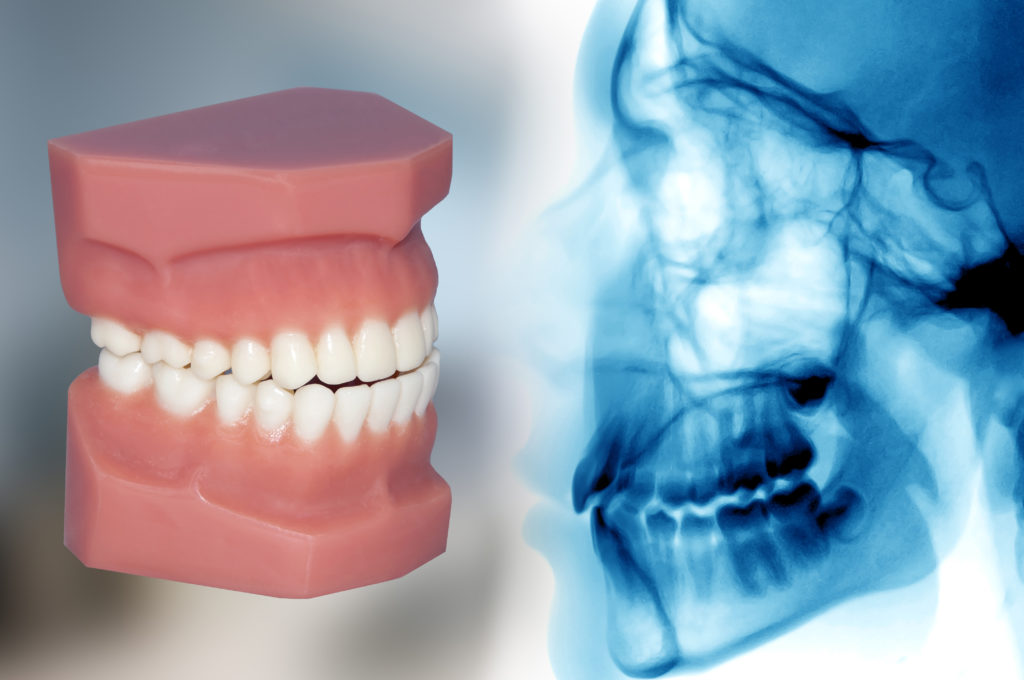

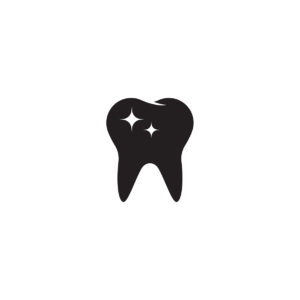
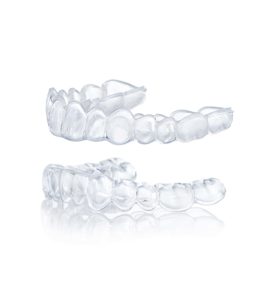
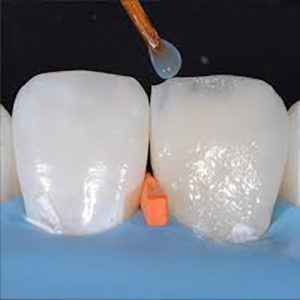


Hi Zaeem
A well written article with some good points. I especially like the potential for easy over the phone consults for mother and child in an emergency. (wouldn’t’t it be so easy for the NHS to set that up now with just one operator and a laptop to service almost the whole country!)
I am less convinced/happy about the prospect for consumer driven orthodontics. (Although I suspect it may come) As anyone with any time spent doing clinical work knows a row of straight teeth is not the total answer to many orthodontic problems. At no point did you mention that Align Technology ever look at the musculature (tongue tie, incorrect swallowing, mouth breathing etc) driving malocclusions and I am certainly not aware of this my dealing with them.